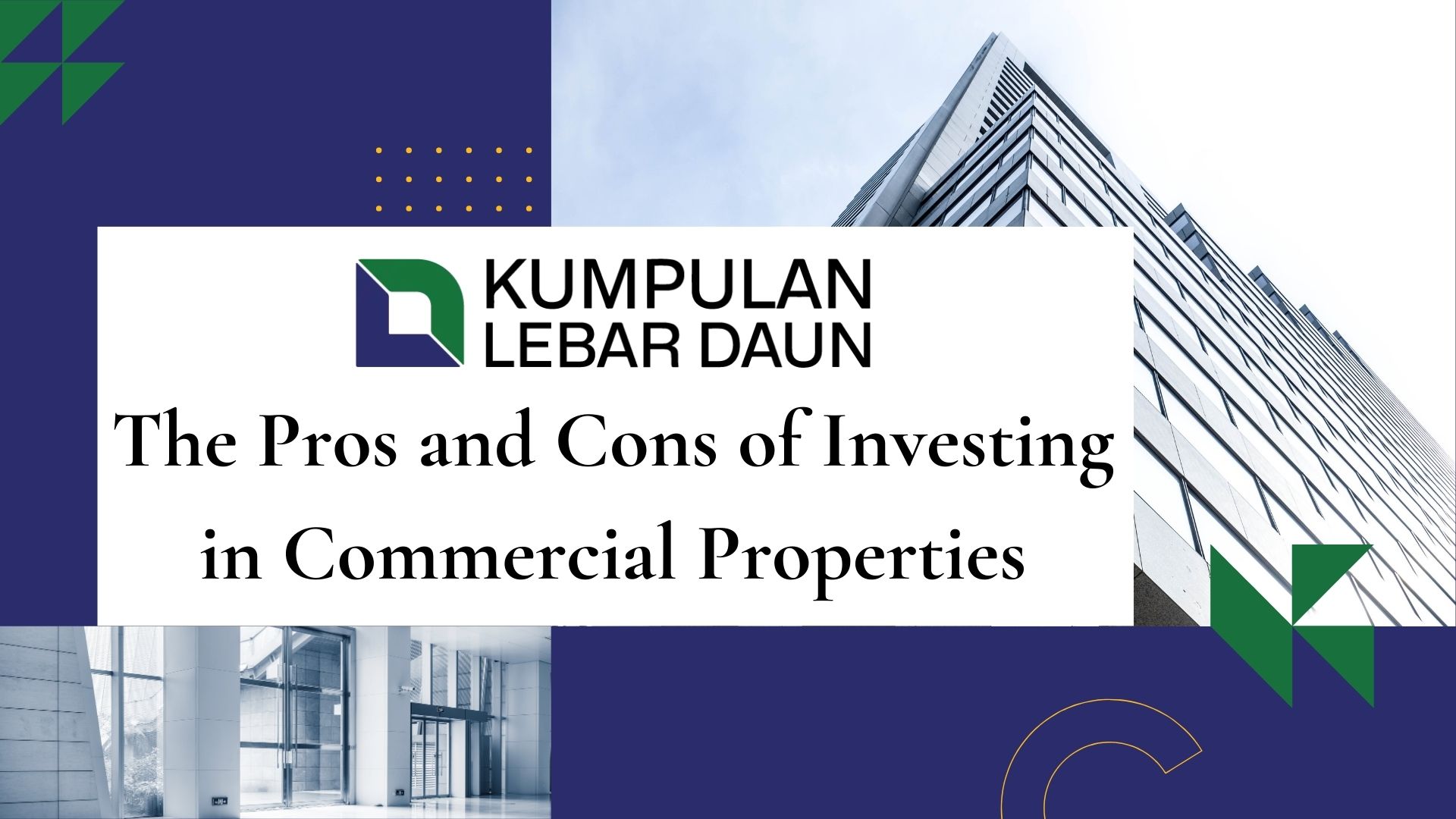
Are you considering diversifying your investment portfolio with commercial properties? While residential real estate often takes the spotlight, commercial properties offer unique opportunities and challenges for investors. In this blog, we’ll explore the pros and cons of investing in commercial properties, helping you make an informed decision about whether they’re the right fit for your investment goals.
Pros of Investing in Commercial Properties:
- Potential for Higher Returns:
Commercial properties typically yield higher rental income compared to residential properties. With longer lease terms and tenants responsible for property maintenance and repairs, commercial investors can enjoy consistent cash flow and higher returns on their investment. - Professional Tenants:
Commercial tenants are often businesses or corporations, which tend to be more stable and reliable than individual renters. Businesses are motivated to maintain their premises and uphold their lease agreements, reducing the risk of late payments or property damage. - Longer Lease Terms:
Commercial leases typically have longer terms than residential leases, ranging from three to ten years or more. Longer lease terms provide stability and predictability for investors, reducing the risk of vacancies and turnover. - Triple Net Leases:
Many commercial leases are structured as triple net leases, where tenants are responsible for paying property taxes, insurance, and maintenance costs in addition to rent. This arrangement can significantly reduce the landlord’s expenses and workload, resulting in higher net income. - Diverse Investment Options:
Commercial real estate offers a wide range of investment options, including office buildings, retail centers, industrial properties, and hospitality venues. Investors can diversify their portfolio by investing in different property types and markets to spread risk and maximize returns.
Cons of Investing in Commercial Properties:
- Higher Initial Investment:
Commercial properties typically require a larger upfront investment compared to residential properties. The higher purchase price, combined with potential renovation and maintenance costs, can be a barrier to entry for some investors. - Market Volatility:
Commercial real estate markets are subject to economic fluctuations and market trends, which can impact property values and rental demand. Economic downturns or shifts in consumer behavior can lead to vacancies and declining rental income. - Tenant Turnover and Vacancy Risk:
While commercial leases tend to have longer terms, vacancies can still occur between tenants. Finding new tenants can be time-consuming and costly, especially in competitive markets or during economic downturns. - Market Specialization Required:
Investing in commercial properties often requires specialized knowledge of specific markets, industries, and property types. Understanding zoning regulations, market trends, and tenant needs is essential for making informed investment decisions. - Complex Lease Negotiations:
Commercial lease agreements are more complex than residential leases and often involve negotiations with tenants over terms such as rent increases, maintenance responsibilities, and lease renewal options. Investors may need legal or professional assistance to navigate these negotiations successfully.





